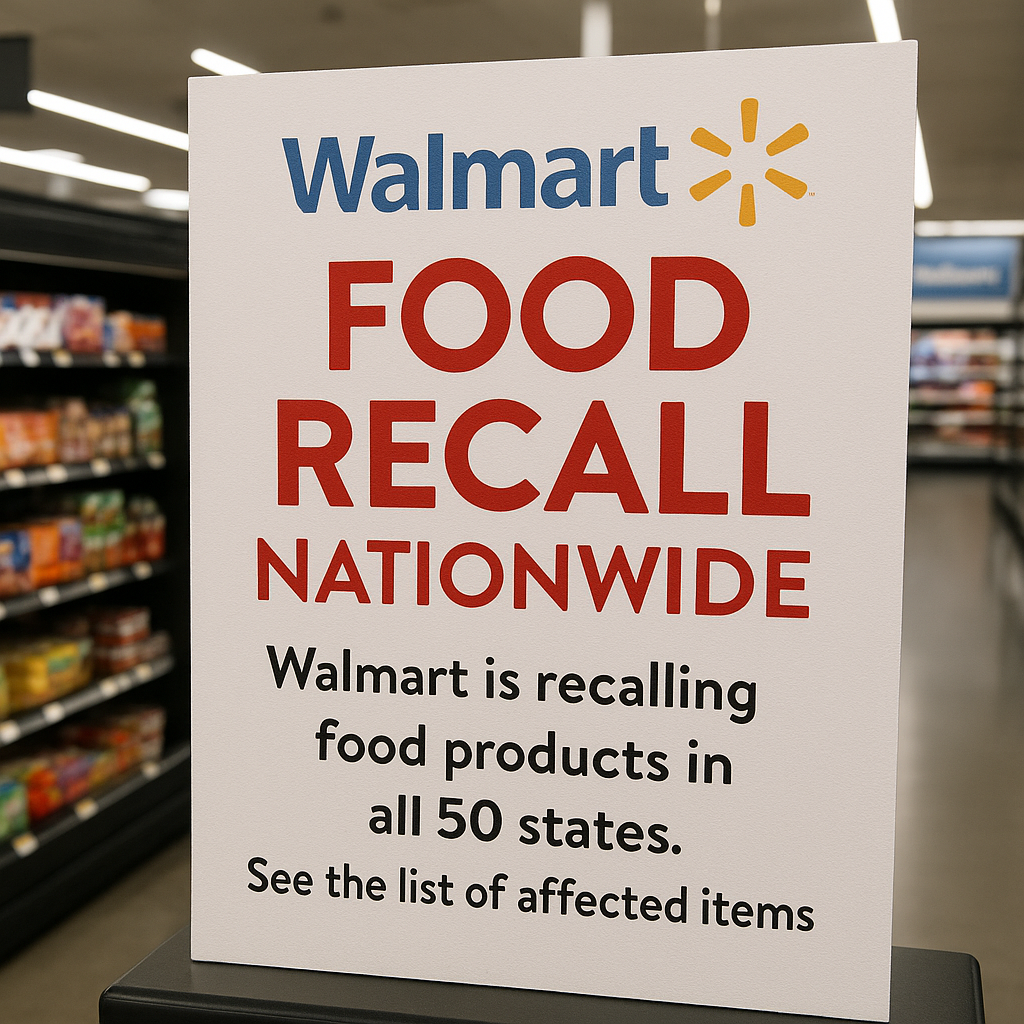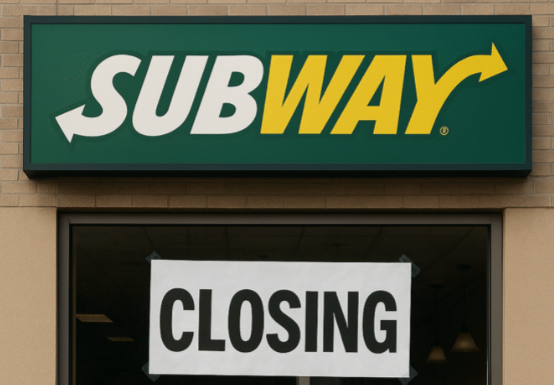Table of Contents
In a significant consumer alert, Walmart has initiated a major recall of several food products sold across all 50 U.S. states. The move follows safety concerns raised during routine inspections and reports of potential contamination risks. The nationwide recall has prompted urgency among shoppers to check their pantries and refrigerators for affected items.
This sweeping recall involves a wide range of ready-to-eat and packaged foods, with health officials warning consumers to immediately stop using the listed items and either dispose of them or return them to Walmart stores for a full refund.
Why Walmart Is Issuing the Recall
According to reports from the U.S. Food and Drug Administration (FDA), the recall stems from possible contamination with Listeria monocytogenes and other pathogens that could pose serious health risks. Listeria, in particular, is a dangerous bacteria that can cause listeriosis, a potentially fatal infection, especially for pregnant women, newborns, older adults, and people with weakened immune systems.
Several of the recalled items were found to be distributed through third-party food suppliers, and concerns were raised after product testing and quality control flags were triggered.
List of Affected Items
Although the full list is extensive and evolving, some of the most commonly recalled products include:
- Packaged salads and leafy greens
- Pre-cut fruit trays
- Ready-to-eat deli meats
- Dairy-based dips and spreads
- Frozen meal kits
- Packaged sandwiches and wraps
Walmart has assured consumers that it is working closely with suppliers and federal agencies to investigate the issue and prevent future incidents.
What Should Consumers Do?
If you recently purchased food from Walmart, particularly refrigerated or pre-packaged items, it’s important to:
- Check the UPC codes and best-before dates against the official recall list on Walmart’s or the FDA’s website.
- Do not consume any affected product, even if it looks or smells fine.
- Return the product to your nearest Walmart store for a full refund—no receipt necessary for recalled items.
- Sanitize surfaces that may have come in contact with recalled food, especially if Listeria is involved.
Walmart has urged consumers to act immediately and has deployed additional resources to ensure that recalled items are swiftly removed from shelves.

Safety First: Public Health Comes First
This recall underscores the importance of food safety protocols in large-scale distribution chains. With Walmart being one of the largest retailers in the United States, even a single oversight in the supply chain can affect millions of homes.
Health experts advise that while recalls can be concerning, they are also a sign that safety mechanisms are working. “Food recalls are not uncommon,” said Dr. Laura Jensen, a food safety specialist. “What’s important is the speed and transparency with which retailers respond—and Walmart is doing the right thing here.”
FAQs
1. Why did Walmart recall these food items?
The recall was initiated due to potential contamination with harmful bacteria such as Listeria monocytogenes, discovered through routine safety checks and testing.
2. What should I do if I have one of the recalled products?
Do not consume the product. Return it to Walmart for a full refund, even if you don’t have the receipt. You can also dispose of the item safely and clean any surfaces it came into contact with.
3. Where can I find the full list of recalled items?
Walmart has published the complete list on its official website. You can also check the FDA recall page or contact Walmart customer service directly for updates.
4. Can I still shop safely at Walmart?
Yes. Walmart is actively removing all affected items and reinforcing food safety checks. As a consumer, staying informed and checking product labels before purchase adds an extra layer of precaution.
You may like to read about :
McRecession 2025: Why Consumers Are Pulling Back from McDonald’s Amid Economic Jitters




